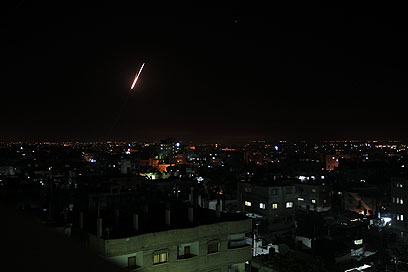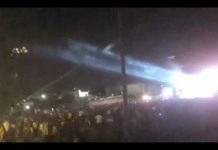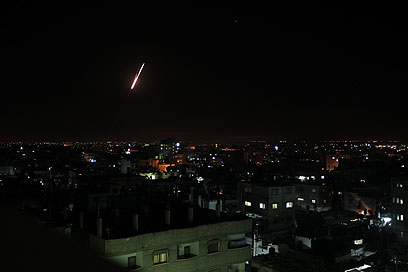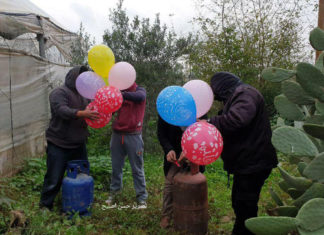
The growing difficulties in smuggling rocket parts from the Sinai Peninsula into the Gaza Strip, including the Israeli Air Force bombing during Operation Pillar of Defense and Egyptian army activity along the border, has pushed Hamas into manufacturing rockets on its own, Palestinian sources told Ynet on Monday.
“Since Operation Pillar of Defense Hamas has become almost completely dependent on the local manufacture of medium-to-long range rockets, which can hit central Israel,” a source said.
The same sources added that inrecent months Gaza residents have become accustomed to the sounds of rocket test fires from various bases and outposts across the Strip.
These statements are in line with Ynet’s Monday report, according to which Hamas is conducting a series of tests in self-produced 8-inch M75 rockets and stores them in special caches in the Strip, thereby significantly increasing its long-range capabilities.
IDF Chief of Staff Benny Gantz said Monday that while there is calm in Gaza, Hamas continues to enhance its capabilities “less through tunnels and more through self-production.”
The smuggling tunnels in Rafah, an important life-line for the Hamas government and for residents of the Strip, are strictly classified and their layout is known only to top officials in the Hamas government’s Interior Ministry.
Every tunnel has its own function and those meant for civilian commodities are completely separated from the tunnels used to smuggle arms.
But Hamas’ smuggling abilities have taken a severe blow after Egypt upped its presence along the border, recently destroying nearly 90% of the tunnels between Gaza and Egypt, according to Asharq Al-Awsat.
Despite Hamas’ persistence in boosting its own rocket arsenal, it appears equally committed to maintaining its monopoly over the armed campain against Israel, and has deployed forces in the areas bordering with Israel which, through patrols and road-blocks, thwart unauthorized rocket launches by subversive groups such as the Salafists.
A Gaza source told Ynet Hamas security services arrested a large number of Salafists – both due to firing directed at Israel and pressure from Egypt, which is concerned from extremist groups seeping in-and-out of the Gaza Strip and Sinai.
The same source added that the Salafists are now banned from holding any public activity in the Strip, and they are mostly prevented from carrying out military operations.









